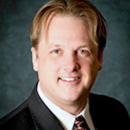The Big News

Purdue Pharma's first bankruptcy hearing starts today. The OxyContin maker filed for bankruptcy protection Sunday and is attempting to expedite a settlement process that it hopes will resolve 2,600 lawsuits that accuse it of instigating the opioid crisis. Purdue’s proposed deal would turn the company into a public benefit trust corporation that would continue to generate OxyContin profits—only now, the profits would go to the states, cities, counties and tribes that are suing. It’s an awkward position for governments, which would rely on profits from the very drug they say has wreaked havoc on their communities. While about half the states and most of the local governments have agreed to the tentative settlement, many are holding out, ready to sue or continue suing the Sackler family
owners beyond bankruptcy court. Under the settlement terms, which need to be approved by the bankruptcy judge, the Sackler family would cede ownership, avoid admitting wrongdoing, and kick in anywhere from $3 billion to $4.5 billion of their own fortune. In total, the proposed settlement is estimated to be worth $10 billion to $12 billion. A major sticking point for those holding out is the amount of the guaranteed contribution from the Sacklers, who—according to reports like this and this—have siphoned billions into a complex web of offshore tax havens and trusts. Attorneys general like Maura Healey in Massachusetts say the victims of the opioid crisis deserve more accountability and justice.
In other big news, the President is considering a ban on flavored vaping products amid the growing outbreak of severe lung disease in the U.S. that has claimed at least six lives. Michigan, New York and California are among states taking aggressive actions of their own, and the CDC has activated its Emergency Operations Center to aid
investigations into reported illnesses and deaths. Meanwhile, a Wisconsin bust sheds light on the amateur black market for vaping supplies, and CBD buyers are advised to be careful of what they’re buying, too. Even before the current outbreak of lung disease and deaths, vaping was causing chronic lung damage and addiction. Not everyone’s so concerned, though. Some say policymakers are over-reacting and that hysteria may lead e-cigarette users back to smoking cigarettes.
Switching gears, we’ve talked for some time about the fact that some healthcare providers believe using buprenorphine to treat opioid use disorder is antithetical to a Twelve Step approach. At the same time, people taking the medication on a long-term basis to support their recovery are often stigmatized. Our new study in the Journal of Substance Abuse Treatment shows that giving patients the choice to use medications like buprenorphine and extended-release naltrexone in Twelve Step-oriented
treatment is not only feasible but effective. Says our Chief Medical Officer Marvin D. Seppala: "Medications help some people, clinical therapy helps others, and still more are helped by peer support. With COR-12, we integrated all three of those elements into a comprehensive model designed to keep people in treatment longer and give them the time and resources they need to stabilize, regain health and hope, learn vital recovery skills, and develop connections to support their long-term recovery. This study shows we are on the right track.”
It’s exciting to see Google put addiction recovery front-and-center during this National Recovery Month! Last Thursday, millions of visitors to Google’s home page were invited to learn more about the Recovery Movement. When they clicked the promoted link, they discovered Google’s new Recover Together resource page. The site, a collaboration
with multiple advocacy groups, includes a collection of short recovery story videos (also on YouTube) and three Google maps—a recovery resource locator, a drug disposal site locator, and a
naloxone locator. Naloxone is the medicine that can reverse an overdose.
Finally, we celebrated Hazelden Betty Ford Foundation Day in Minnesota last Thursday. We are grateful to Gov. Tim Walz for proclaiming the special day in honor of our organization’s 70th anniversary. At an anniversary event Thursday night, we honored the Butler family (notably Emmett, Patrick, Aimee, Lawrence, Cooley, Peter and John), which has played a pivotal role in our history, with a Founders Award. We also presented awards to Carol Pine, who in the late 1990s became our first female board
chair, and Damian McElrath, a longtime Hazelden leader who chronicled our history in several books. The event included a pop-up museum that featured our history and many unique items from our archives. See just a few of the pictures at the bottom of this message.
This week’s featured media is a great public radio interview with our Children’s Program leader Jerry Moe, who spoke at a “Kids in Crisis” event last week in Florida.
As a bonus, here also is an interesting video of the national address the Reagans gave 33 years ago this week to kick off a new “Just Say No” campaign. Though a well-intentioned effort to promote education and resistance skills among youth—also valuing the role of people in recovery—the campaign is wrapped in unfortunate words like crusade, war, moral, cure and tyranny, reflecting how misunderstood addiction still was in that era.
Share: Tweet | Facebook | LinkedIn
|






















